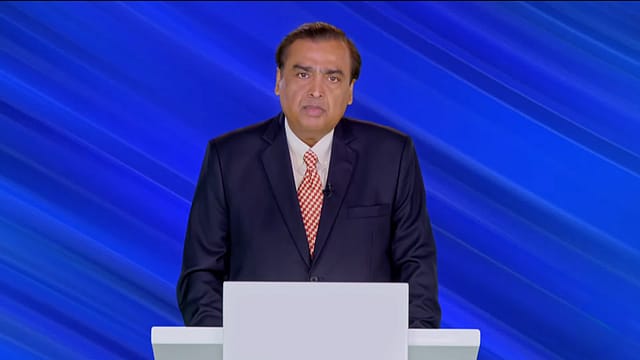Jio Platforms to develop India-specific AI models: Mukesh Ambani
ADVERTISEMENT

Reliance Industries is rapidly augmenting its talent pool and capabilities to swiftly assimilate the latest global innovations in artificial intelligence (AI), especially the recent advances in Generative AI, according to RIL chairman Mukesh Ambani.
"Looking ahead, Jio Platforms wants to lead the effort in developing India-specific AI models and AI-powered solutions across domains, thereby delivering the benefit of AI to Indian citizens, businesses and government alike," Ambani says at the 46th annual general meeting of the company.
"A global AI Revolution is reshaping the world around us, and sooner than we think, intelligent applications will redefine and revolutionise industries, economies, and even our daily life. To stay globally competitive, India must harness AI for innovation, growth, and national prosperity," he says.
"India has the scale. India has the data. India has the talent. But we also need digital infrastructure in India that can handle AI's immense computational demands," the RIL chairman adds.
As this sector expands, RIL stands committed to creating up to 2000 megawatts of AI-ready computing capacity, across both Cloud and Edge locations, Ambani says, adding that the company will do this while adopting sustainable practices and a greener future.
"Over the next five years, we plan to shift most of our energy footprint in connectivity and digital services to Green Energy, which is not just eco-friendly but also lower cost. Here is my promise to our countrymen. Seven years ago, Jio promised broadband connectivity to everyone, everywhere. We have delivered. Today Jio promises AI to everyone, everywhere," Ambani says.
These comments come days after Tata Sons chairman N Chandrasekaran said AI will create jobs in India because it will empower people with little or no skills to perform higher-level jobs. "The world is already moving from predictive AI to generative AI. However, there are two worries – people worry about privacy and jobs," said Chandrasekaran. India has made a big breakthrough in the privacy space, according to Chandrasekhar. "India has taken a techno-legal approach. On the one hand, we have got the regulations for data privacy and data protection. On the other hand, we have created DEPA (Data Empowerment and Protection Architecture). With both working together, we are able to very safely secure with consent any transaction on sharing of data at an aggregate level with complete security protecting privacy," he said.